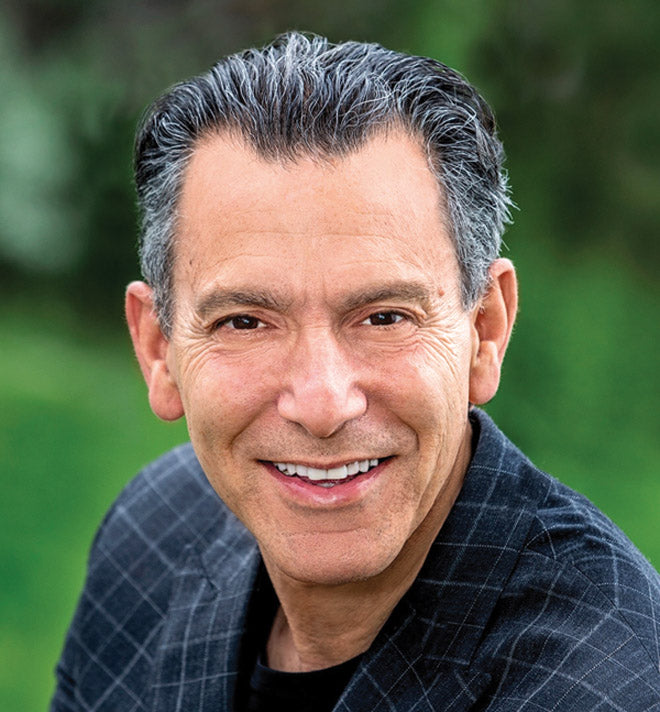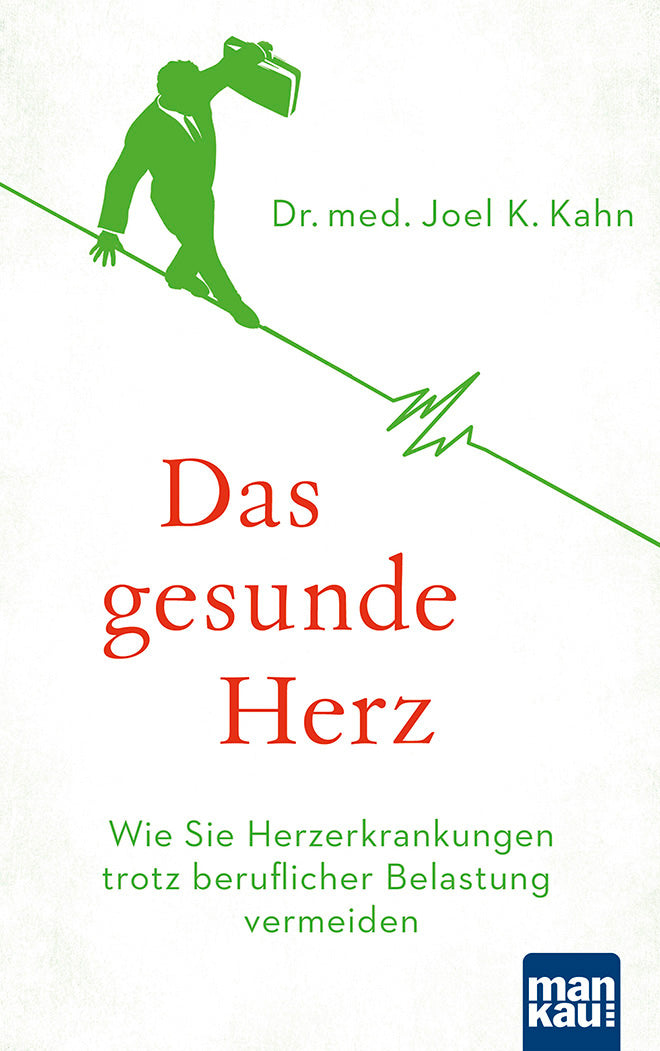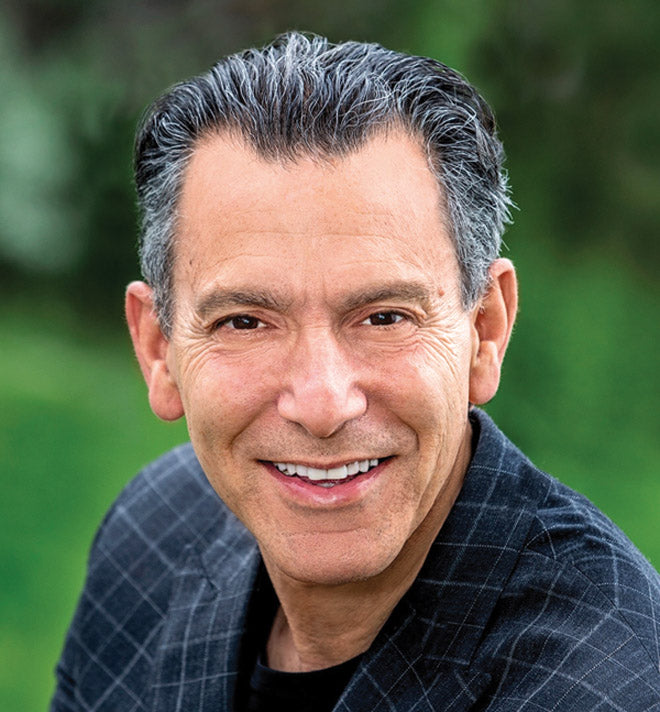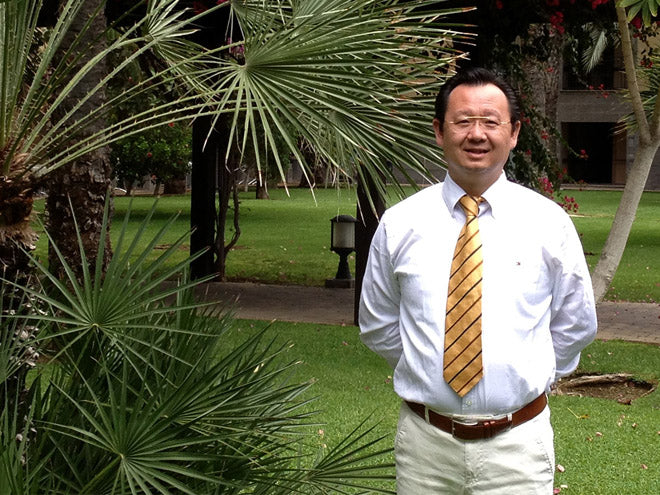
“Millions of people would not have had to die”: Interview with US cardiologist Dr. Joel K. Kahn, author of “The Healthy Heart”
“Millions of people would not have had to die”: Interview with US cardiologist Dr. Joel K. Kahn, author of “The Healthy Heart”
Heart disease would decrease significantly if we institutionalized healthy whole grain diets, exercise and giving up smoking." In an interview, the renowned US cardiologist and author Dr. Joel K. Kahn ( "The Healthy Heart" ) spoke about the causes and risks of heart disease. Kahn is convinced that the risk of heart attack can be reduced by up to 90 percent through appropriate measures.
In the USA, around 600,000 people die of a heart attack every year, and in Germany around a quarter of a million people die. This makes heart disease the number one cause of death in Western societies. What are the reasons for this, and why is the risk of heart disease still often underestimated?
Dr. Kahn: The causes of these horrendous numbers are usually smoking, high blood pressure, and high cholesterol and blood sugar levels. A study conducted in 1993 showed that more than 80 percent of these events are caused by lifestyle choices that we ourselves have control over: smoking (it was the main cause, but is no longer that position due to the decline in smoking behavior), food choices - that is, eating predominantly whole plant foods as opposed to highly processed animal foods - and levels of physical activity and fitness. Heart disease would decrease significantly if we institutionalized healthy whole grain diets, exercise, and not smoking.
Your book reports on numerous cases in which exceptionally productive and healthy people were suddenly torn from their successful careers and happy family lives. What signs were overlooked here, and which occupational groups are particularly at risk?
Dr. Kahn: Heart disease is not always diagnosable. Some people attribute chest pain, shortness of breath, fatigue and the like to stress, but do not notice real warning signs until they have a massive heart attack or sudden cardiac death. The only solution is to start regular screening for silent heart disease at perhaps age 45, just as we do for breast and colon cancer.
In your book you focus primarily on so-called coronary heart disease. What exactly does this mean and what symptoms can be identified?
Dr. Kahn: Coronary heart disease is the most common form of heart disease, in which the blood vessels leading to the heart narrow and no longer supply the heart with enough blood. It is not a natural phenomenon of aging, but is related to lifelong lifestyle and genetics.
The disease can be diagnosed, treated and even reversed and does not necessarily result in bypass or stent surgery or death. It is tragic that so many people die or are severely disabled by this disease that does NOT AFFECT half the world's population AT ALL.
In contrast to the previous preventive examinations and standard tests, you advocate modern laboratory methods and lifestyle changes. What procedures are available now, and which lifestyle and eating habits cause a sick heart?
Dr. Kahn: There is no controversy. A 30-second CT scan of the heart without any medication, called a coronary calcium scan, can diagnose silent heart disease years before potentially tragic events occur and costs as little as $100 in the United States. This scan rarely needs to be repeated, perhaps after five or ten years, if at all.
The proven method for preventing heart disease is to eat a mainly plant-based, whole food diet from an early age, to measure blood pressure at regular intervals and to have blood cholesterol, blood sugar, lipoprotein (a) and other values checked in a laboratory, to exercise daily and not to smoke. Millions of people would not have had to die if these simple and inexpensive measures had been taken.
The Kahn Center for Cardiac Longevity in Bingham Farms, Michigan (USA), which you founded, is one of the most advanced clinics for the reversal of heart disease. What methods do you use here, and how does your approach differ from that of other cardiologists?
Dr. Kahn: The procedures performed at the Kahn Center include 1) a detailed history of lifelong habits such as diet, exercise, sleep, stress, dental health, and the like; 2) state-of-the-art laboratory testing, including identification of key markers such as lipoprotein (a) and environmental factors such as mercury exposure; 3) carotid artery mapping using ultrasound and coronary artery imaging using CT. A personalized plan is then developed based on personal risks.
In your book, you quote Paul Dudley White, President Eisenhower's doctor, who said that a heart attack after the age of 80 is an act of God, but a preventable event at younger ages. Does this mean that the development of heart disease is in the hands of each individual?
Dr. Kahn: Genetics can account for up to 30 percent of the development of heart disease, but even an unfavorable genetic predisposition can be kept in check with a good lifestyle.
If we want to save lives and save money, we need to get children, teenagers and young adults to avoid processed and fast foods, exercise, stop smoking and eat whole foods like fruits and vegetables. Habits are easy to describe, but very difficult to change.
Book tip:
Dr. med. Joel K. Kahn: The healthy heart. How to avoid heart disease despite occupational stress. Mankau Verlag, 1st edition Sept. 2019, paperback, 13.5 x 21.5 cm, 174 pages, 14.95 euros (D) / 15.40 euros (A), ISBN 978-3-86374-529-5.
Link recommendations:
More information about the book "The healthy heart. How to avoid heart disease despite occupational stress"
To the reading sample in PDF format
More about the author Dr. Joel K. Kahn
To the Internet forum with our authors and readers











